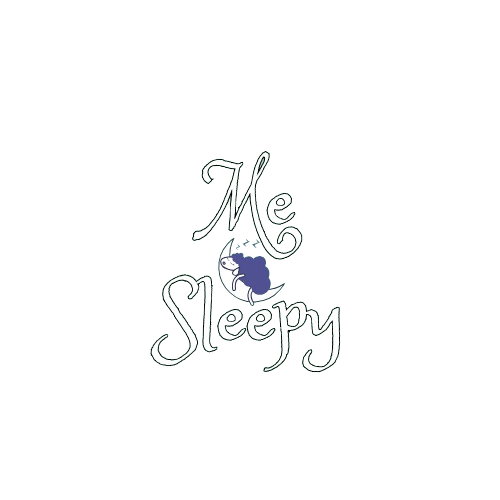Introduction to Insomnia and Stroke Association
Overview of the Study Published in Neurology®
A recent study published in the September 11, 2024, online issue of *Neurology®*, the medical journal of the American Academy of Neurology, has shed light on the association between stroke and abnormal sleep patterns. The study, involving 39,559 participants, including 1,572 stroke survivors, aimed to explore the differences in sleep duration between those who have had a stroke and those who have not. It is important to note that while the study found a significant association, it does not establish a causal relationship between stroke and abnormal sleep.
Explanation of the Study’s Findings on Sleep Patterns Post-Stroke
The study’s findings indicate that stroke survivors are more likely to experience abnormal sleep durations compared to individuals without a history of stroke. Specifically, stroke survivors were found to be 54% more likely to report sleeping more than eight hours per night and 50% more likely to sleep less than six hours per night. These findings highlight the importance of monitoring sleep patterns in stroke patients, as both insufficient and excessive sleep can negatively impact recovery and quality of life.
Impact of Stroke on Sleep Duration
Comparison of Sleep Duration Between Stroke Survivors and Non-Stroke Individuals
The study categorized sleep duration into three groups: short (less than six hours), normal (six to eight hours), and long (more than eight hours). It was observed that normal sleep duration, defined as six to eight hours, was less common among stroke survivors across all age groups. For instance, only 32% of stroke survivors aged 18-44 reported normal sleep duration, compared to 54% of non-stroke individuals in the same age group. Similarly, 47% of stroke survivors aged 45-64 and 45% of those over 65 reported normal sleep, compared to 55% and 54% of their non-stroke counterparts, respectively.
Statistical Analysis Showing Increased Likelihood of Abnormal Sleep Duration in Stroke Survivors
After adjusting for factors such as age, weight, and high blood pressure, the researchers found that stroke survivors were significantly more likely to experience abnormal sleep durations. Specifically, stroke survivors were 54% more likely to sleep more than eight hours per night and 50% more likely to sleep less than six hours per night compared to those without a history of stroke. These statistics underscore the need for healthcare providers to screen for sleep issues in stroke patients and to develop interventions aimed at improving sleep habits to enhance recovery and overall well-being.
In conclusion, the study published in *Neurology®* provides valuable insights into the association between stroke and sleep duration. The findings emphasize the importance of addressing sleep issues in stroke survivors to improve their recovery and quality of life. Further research is needed to explore the underlying mechanisms and to develop effective interventions for managing sleep disturbances in this population.
Age-Related Variations in Sleep Patterns Post-Stroke
Sleep Duration Differences in Various Age Groups with and Without Stroke
The study revealed intriguing age-related variations in sleep patterns among stroke survivors compared to those without a history of stroke. For younger adults aged 18-44, only 32% of stroke survivors reported a normal sleep duration of six to eight hours, in contrast to 54% of their non-stroke counterparts. This trend persisted across older age groups, with 47% of stroke survivors aged 45-64 and 45% of those over 65 reporting normal sleep durations, compared to 55% and 54% of non-stroke individuals in the same age brackets, respectively. These findings suggest that stroke may disrupt sleep patterns across all age groups, but the impact appears to be more pronounced in younger adults.
Adjusted Factors Influencing Sleep Duration in Stroke Survivors
The researchers took into account several factors that could influence sleep duration, such as age, weight, and high blood pressure. Even after adjusting for these variables, stroke survivors were still significantly more likely to experience abnormal sleep durations. This indicates that the relationship between stroke and sleep disturbances is robust and not merely a byproduct of other health conditions. The study underscores the importance of considering these adjusted factors when developing personalized sleep interventions for stroke survivors. For those looking to improve their sleep quality, exploring resources like Sleep Sound Playlists could be beneficial.
Future Directions and Limitations in Stroke-Related Sleep Research
Need for Further Research to Explore the Link Between Stroke and Sleep Duration
While the study provides valuable insights, it also highlights the need for further research to better understand the link between stroke and sleep duration. Future studies should aim to explore the underlying mechanisms that contribute to sleep disturbances in stroke survivors. Additionally, research should focus on the long-term effects of abnormal sleep patterns on stroke recovery and overall health outcomes. Understanding these mechanisms could lead to the development of targeted interventions that improve sleep quality and, consequently, the quality of life for stroke survivors.
Challenges in Self-Reporting Sleep Hours and Its Impact on Data Accuracy
One of the limitations of the study is the reliance on self-reported sleep hours, which can be prone to inaccuracies. Participants may not accurately remember or report their sleep duration, leading to potential biases in the data. Future research could benefit from using objective measures of sleep, such as polysomnography or wearable sleep trackers, to obtain more accurate data. Despite these challenges, the study’s findings are a crucial step toward understanding the complex relationship between stroke and sleep. For more insights into sleep-related issues, including sleep apnea, you can visit our Sleep Apnea Blog.
In conclusion, addressing sleep disturbances in stroke survivors is essential for improving their recovery and overall well-being. By continuing to explore this important area of research, we can develop more effective strategies to help stroke survivors achieve better sleep and, ultimately, a better quality of life.
Source: https://www.sciencedaily.com/releases/2024/09/240911175938.htm



